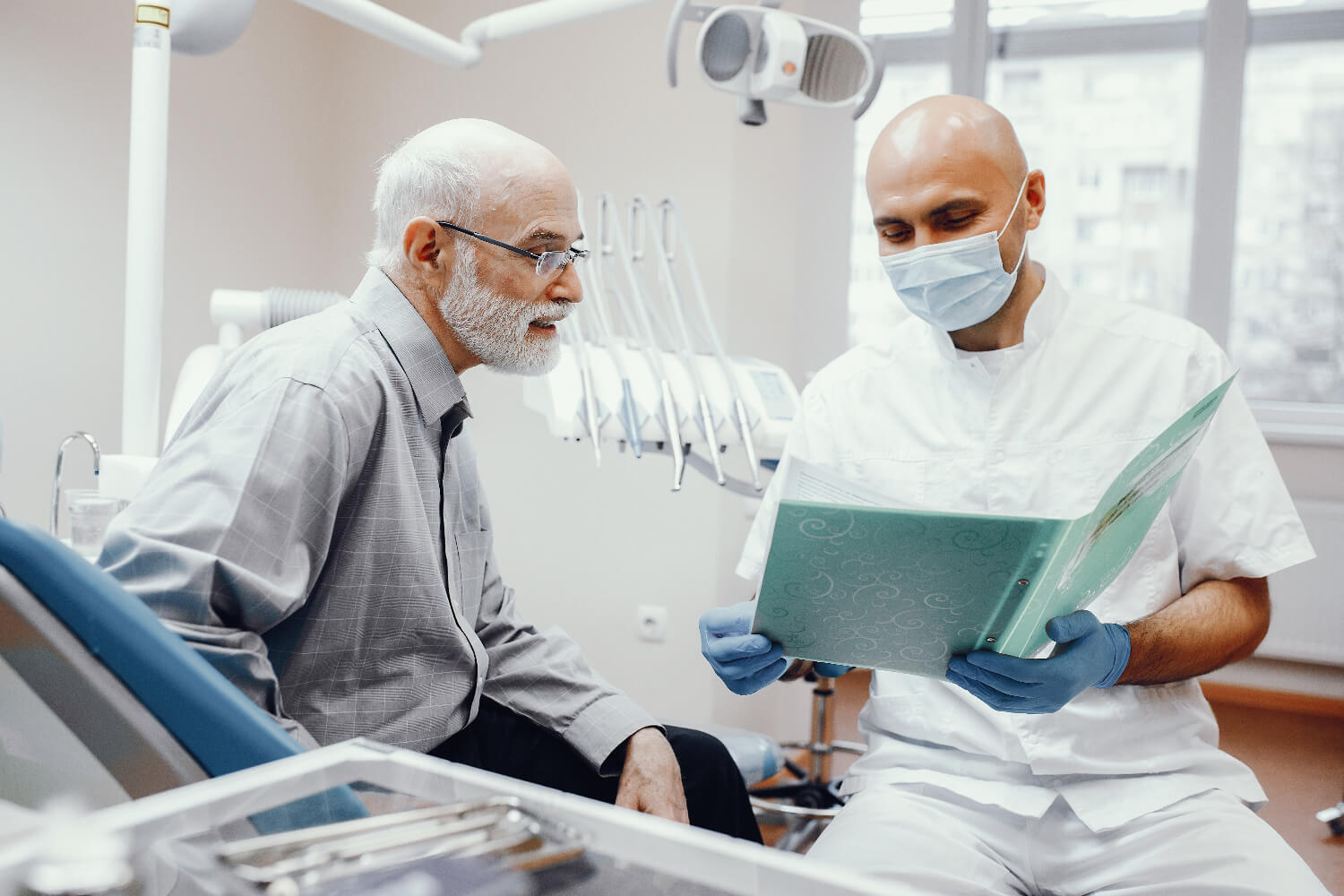As individuals age, the maintenance of oral health becomes increasingly vital for overall well-being. This chapter delves into specialized considerations for senior dental care, addressing unique challenges faced by older adults, including dry mouth, denture care, and oral cancer awareness.
Unique Challenges in Senior Dental Care:
1. Dry Mouth and Its Implications:
Many seniors experience dry mouth, a condition that reduces saliva production. This not only leads to discomfort but also increases the risk of cavities and gum disease. Hydration, sugar-free lozenges, and prescription saliva substitutes can help manage dry mouth.
2. Denture Care for Optimal Function:
A significant portion of older adults relies on dentures. Proper denture care is crucial for optimal function and oral health. Regular cleaning, overnight soaking, and periodic check-ups with a dentist ensure the longevity and effectiveness of dentures.
3. Gum Disease and Periodontal Health:
Aging individuals may be more susceptible to gum disease. Regular dental check-ups, diligent oral hygiene practices, and early intervention in case of any signs of gum issues are paramount in maintaining periodontal health.
4. Oral Cancer Awareness and Screenings:
Older adults are at an increased risk of oral cancer. Regular screenings during dental check-ups are essential for early detection. Awareness of potential symptoms, such as persistent sores or changes in oral tissues, empowers seniors to seek timely medical attention.
Guidelines for Senior Oral Health:
1. Regular Dental Check-ups:
Biannual dental check-ups are crucial for seniors. These visits allow for the detection of issues in their early stages and provide an opportunity for professional cleanings.
2. Adaptive Oral Hygiene Practices:
For those with mobility or dexterity challenges, adaptive tools like electric toothbrushes and floss holders can facilitate effective oral hygiene practices.
3. Nutrition and Hydration:
A well-balanced diet rich in nutrients contributes to both overall health and oral well-being. Adequate hydration is particularly important for combating dry mouth.
4. Smoking Cessation Programs:
Seniors who smoke are at an elevated risk of oral health issues, including oral cancer. Accessing smoking cessation programs can significantly improve oral and overall health.
5. Managing Chronic Conditions:
Many seniors manage chronic conditions that can impact oral health. Coordination between healthcare providers is essential to create a comprehensive approach that addresses both oral care and overall health.
6. Fall Prevention and Dental Safety:
Falls can have severe consequences for oral health, particularly for individuals with dentures. Ensuring a safe living environment and addressing mobility concerns reduces the risk of accidents.
7. Promoting Mental Health:
The emotional and psychological aspects of oral health should not be overlooked. Regular dental visits contribute not only to physical health but also to a sense of well-being and confidence.
8. Customized Denture Solutions:
For those with dentures, customized solutions that ensure proper fit and function are essential. Regular assessments by a dentist allow for adjustments as needed.
9. Educational Initiatives:
Educational initiatives within senior communities can raise awareness about the importance of oral health. Workshops, seminars, and informational materials can empower older adults to take an active role in their dental care.
10. Coordination with Caregivers:
For seniors requiring assistance, coordination with caregivers is key. Caregivers play a vital role in supporting oral hygiene routines, scheduling dental appointments, and recognizing any changes in oral health.
In addressing the specialized considerations of senior dental care, a comprehensive and proactive approach is fundamental. By incorporating these guidelines into the care routine, seniors can maintain optimal oral health, contributing to a higher quality of life and overall well-being as they age gracefully.



